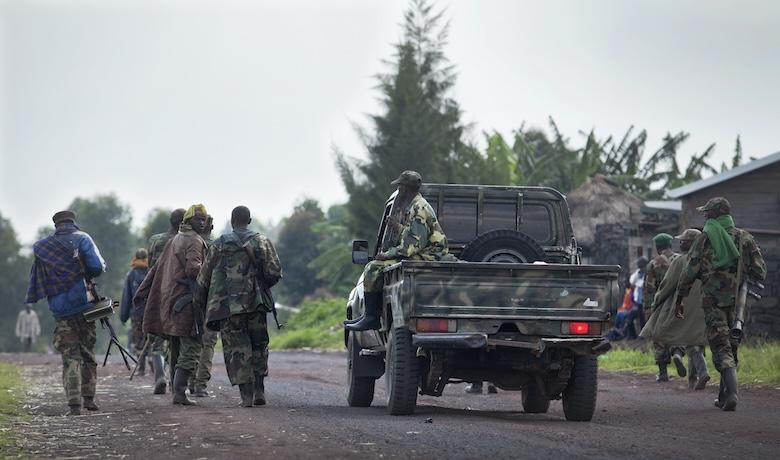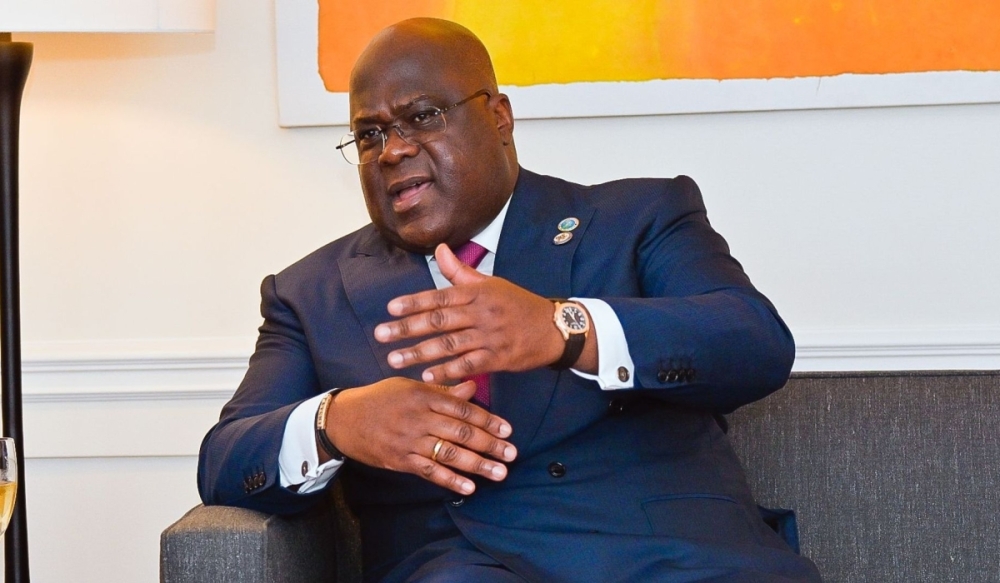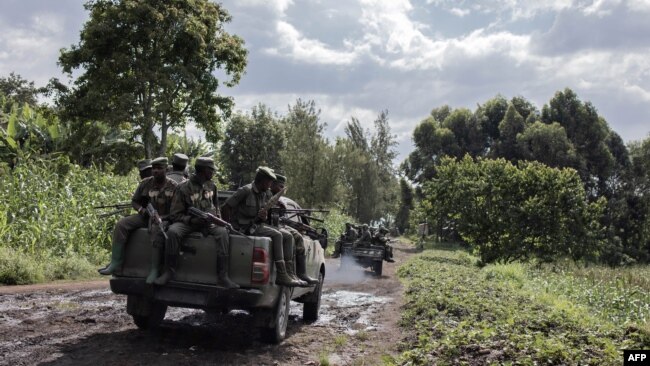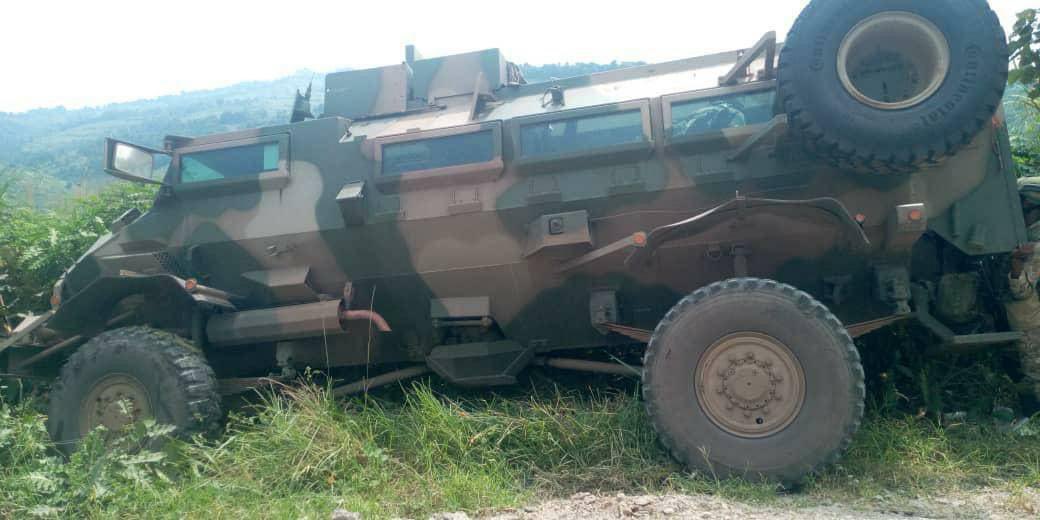Regional
DRC crisis: Understanding the cease-fire decided in Luanda without M23’s presence
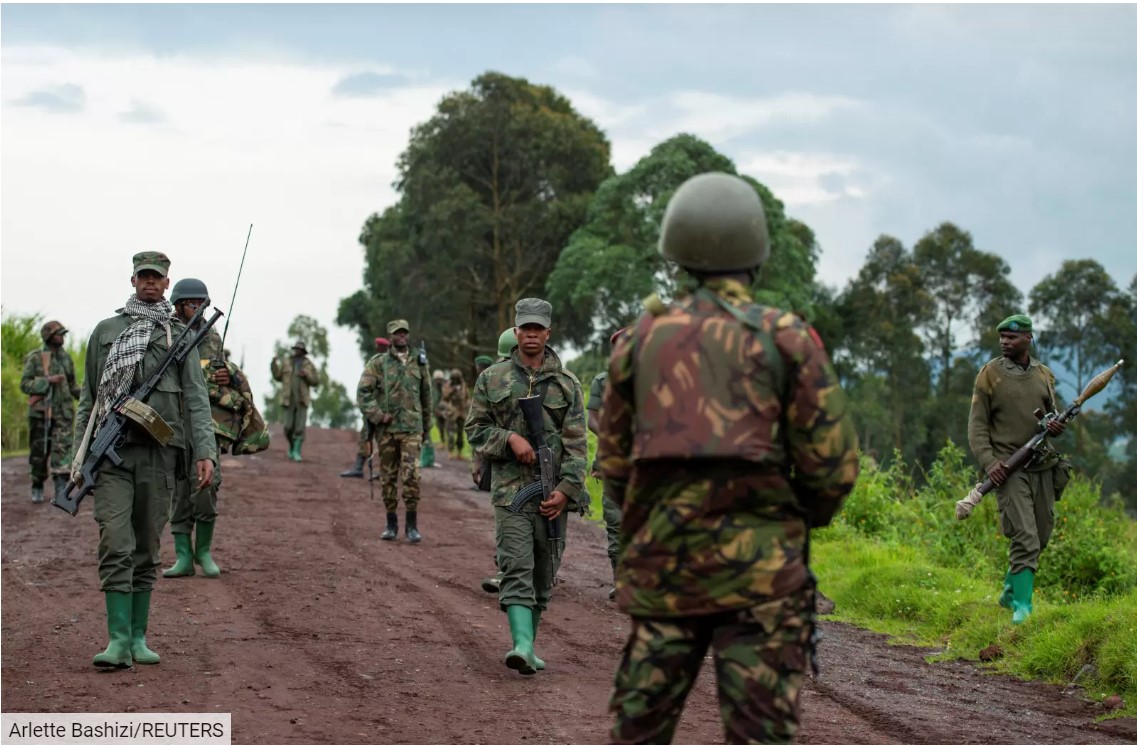
Congolese M23 rebels are pictured withdrawing from Kibumba, near Goma, in North Kivu Province, on 23 December 2022.
The Alliance Fleuve Congo
(AFC) political-military coalition was not represented in the second
ministerial meeting between Rwanda and the Democratic Republic of Congo hosted
by Angola's Ministry of Foreign Affairs, on July 30, which agreed on
establishment of a ceasefire between the warring parties in eastern DRC
effective August 4.
As a matter of fact, earlier,
on July 24, a military court in DRC opened a case against Corneille Nangaa, the
leader of the politico-military coalition comprising the M23 rebel group which
took up arms against the Congolese government in November 2021.
Also prosecuted for alleged
war crimes and treason, among others, were Nangaa's wife, Yvette Lubanda
Nazinda, the AFC/M23 military commander, Maj Gen Sultani Makenga, and other
leaders including Bertrand Bisimwa, Willy Ngoma and Lawrence Kanyuka.
The AFC coalition does not
participate in the Luanda peace processes since the latter aims at halting
tensions between the governments of Rwanda and DRC. The tensions started with the M23 resurgence in late 2021
as DRC accused Rwanda of backing the rebels, an allegation that Kigali denies.
Rwanda accuses DRC of arming
and harboring FDLR, a terrorist group formed by remnants of the perpetrators of
the 1994 Genocide against the Tutsi in Rwanda.
The EAC-led Nairobi peace
process is the framework in which armed groups operating in eastern DRC participate.
As deteriorating conflict in
eastern DRC is at the center of the Luanda peace process, the parties involving
in the conflict – the Congolese army and its coalition one one side and
Nangaa's AFC on the other side – are concerned with all discussions in Angola,
in one way or another.
Regional countries, including
Rwanda, tried their best to help DRC find a sustainable solution to its
security crisis by addressing the root causes of the problem in its eastern
region.
Uganda, Kenya and Angola
provided space for dialogue, and Rwanda encourages efforts to end tensions by
being committed to the Luanda process.
Kigali is concerned by the
eastern DRC crisis due to the security threat posed by FDLR which is intent on
lunching attacks on Rwanda’s territory, as well as the hubdreds of Congolese
refugees regularly fleeing to Rwanda.
Again, in every conflict
worldwide, each party has some countries that understand its cause. In the
context of the DRC crisis, Rwanda is among the countries that understand M23’s
cause. The rebels are fighting against an existential threat - the FDLR’s
genocide ideology.
Angola believes that Rwanda
can help in advising the rebels to commit to a cease-fire. It is safe to say
that this might be the reason why Kinshasa and Kigali agreed on a cease-fire in
Luanda without M23’s presence, hoping the rebel group can accept the advice
from Kigali. But, the rebels can take or reject the advice.
In a statement issued on
August 1, the AFC/M23 coalition announced that it has followed the latest
developments aimed at achieving peace within the framework of the Luanda
process and congratulated all the actors for their endless work towards a
peaceful resolution of the multifaceted crisis in eastern DRC.
The AFC/M23 emphasized that it
is not automatically bound by the conclusions of meetings to which it has not
attended.
Some individuals and
organizations got it wrong by claiming, “Rwandan and Congolese governments
agreed on cease fire,” since Rwanda is not involved in the deteriorating
conflict in eastern DRC.
The Luanda communique stated
that the foreign ministers of DRC, Angola, and Rwanda agreed on a ceasefire
between the parties to the conflict in the east of DRC. The warring parties in this conflict are the
AFC/M23 rebels and Congolese army coalition - which has Burundian troops,
European and American mercenaries, Southern African Development Community
(SADC) troops, MONUSCO, myriad of militias grouped in Wazalendo, and FDLR.
The AFC/M23 has showed the will to resolve the conflict through dialogue. But, Kinshasa has opted for a military solution, an approach that has failed in the past.



